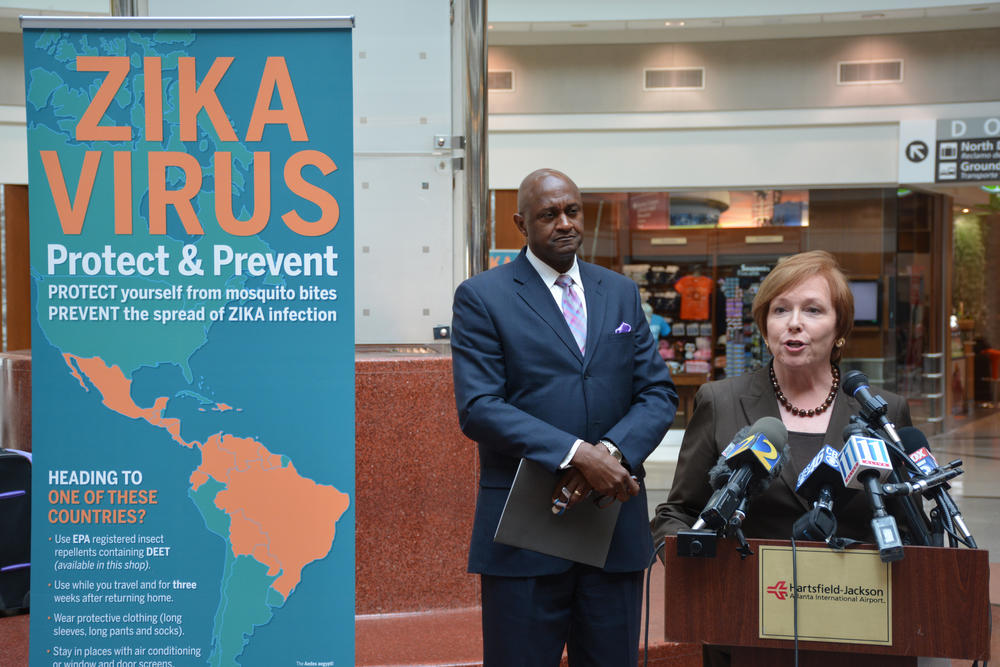Section Branding
Header Content
Hartsfield-Jackson Airport Joins Fight Against Spread Of Zika Virus
Primary Content
Atlanta's Hartsfield-Jackson International Airport is joining the fight against the Zika virus. Public health officials say the world's busiest airport plays an important part in stopping the disease.
“At this point, in the United States, all of the cases of Zika have been associated with travel,” Brenda Fitzgerald, Commissioner of the Georgia Department of Public Health, told reporters Wednesday. “This is a first line of defense,” she added.
The Department of Public Health has posted signs inside the airport with information on how travelers can protect themselves in countries affected by Zika.
The main tip? Wear insect repellent that contains the EPA-recommended amount of 20 to 30 percent DEET while traveling and for a three-week period after returning home. Airport vendors have started selling the stronger insect repellent.
The signs also encourage travelers to wear protective clothing and to stay in places with air conditioning or window screens. The effort is part of the Department of Public Health’s larger campaign to fight the spread of the virus in Georgia.
Miguel Southwell, Hartsfield-Jackson’s General Manager, said it made sense for the airport to join in.
“As the region's global gateway, we believe it is our responsibility to work tirelessly with our partners at the Georgia Department of [Public] Health and other agencies to educate the public about this virus,” he said.
Zika virus is mainly transmitted via mosquito bite but can also be spread sexually. It’s been linked to the birth defect microcephaly and Guillain-Barré syndrome, an immune system disorder.
The Centers for Disease Control and Prevention says 312 cases of travel-related Zika virus have been reported in the United States. Today, the White House announced it would direct more money to Zika research.


